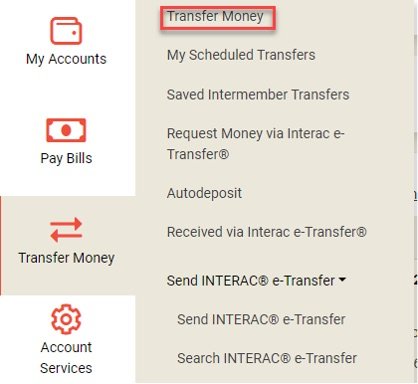Are you wondering if you can transfer money from your business account to your personal account? You’re not alone.
Many business owners face this question, and the answer isn’t always straightforward. Navigating the financial rules and regulations can feel overwhelming, but understanding how to handle these transactions is crucial for your financial health and legal compliance. Imagine the peace of mind you’ll gain by knowing the exact steps to take, ensuring that you stay on the right side of the law while managing your finances efficiently.
In this guide, we’ll break down the essentials in clear, simple language. You’ll discover what you need to know before making any transfers, the potential pitfalls to avoid, and how to ensure your actions align with legal and financial best practices. Stay tuned to equip yourself with the knowledge you need to make informed decisions confidently.

Legal Implications
Transferring money from a business account to a personal account can have legal implications. It’s crucial to understand tax consequences and compliance with financial regulations. Missteps might lead to audits or penalties, so consulting a financial advisor is advisable.
Understanding the legal implications of transferring money from a business account to a personal account is crucial for business owners. Such transactions are not just simple transfers; they can have far-reaching effects on both your personal and business finances. It’s essential to be aware of the rules and regulations to avoid any potential legal issues that might arise.
Ensuring Compliance With Tax Laws
Transferring money from your business account to your personal account could have tax implications. As a business owner, you must ensure that all such transfers are recorded accurately. This helps in maintaining transparency with the IRS and ensures that you are paying the correct amount of tax.
You may have heard of someone who faced a tax penalty because they didn’t report these transfers correctly. Avoid being that person. Regularly consult with a tax professional to stay compliant and avoid unnecessary fines.
Understanding Business Structure Restrictions
Your business structure plays a significant role in determining how money can be transferred. If your business is a corporation, the funds you take out could be considered dividends or salary, each with different tax implications.
Consider the story of a small business owner who inadvertently violated corporate rules by transferring money without proper documentation. This mistake cost them time and money in legal fees. Understanding your business structure can save you from making similar mistakes.
Maintaining Accurate Financial Records
Accurate financial records are crucial when transferring money between accounts. This is not just a suggestion; it’s a legal requirement. Keeping detailed records of each transfer helps you prove that funds were used for legitimate business purposes.
Think about it: would you remember the reason for a transfer from six months ago without a record? Probably not. Use accounting software or hire a bookkeeper to ensure that all transactions are logged accurately.
Addressing Legal Consequences Of Mismanagement
Mismanagement of business funds can lead to severe legal consequences. If you’re not careful, you could face accusations of fraud or embezzlement. This is especially true if the transfers are frequent and undocumented.
Consider asking yourself: Are my financial practices putting my business at risk? Taking proactive steps to manage your funds properly can prevent legal issues and ensure the longevity of your business.
Transferring money from a business account to a personal account is not just a financial decision; it’s a legal one. By staying informed and following the guidelines, you can ensure that your business remains compliant and successful.
Tax Considerations
Transferring money from a business account to a personal account can have tax implications. It’s important to track these transactions carefully. Consult a tax professional to avoid penalties and ensure compliance with tax laws.
Transferring money from your business account to your personal account might seem like a simple task, but it can come with several tax considerations that you should be aware of. It’s essential to understand how these transfers can impact your financial records and tax obligations. Navigating this area effectively can save you from potential pitfalls and even legal issues.
Understanding Tax Implications
When you transfer money from a business account to a personal account, it could be classified differently for tax purposes. This can affect how much tax you owe.
If you consider it as a salary, you need to ensure proper payroll taxes are paid.
If it’s a dividend, different tax rates may apply.
Recording Transactions Correctly
Proper documentation is crucial. Keeping a clear record of these transfers helps maintain transparency and accuracy in your financial statements.
It also simplifies the process when tax season arrives.
Inaccurate records can lead to audits, which are time-consuming and stressful.
Consulting A Tax Professional
Consider seeking advice from a tax professional. They can help you understand the implications and guide you through the process.
They can also ensure compliance with local laws, which can vary significantly.
This step can prevent costly mistakes and penalties down the line.
Personal Experience: Learning The Hard Way
Years ago, I made a transfer without consulting a tax expert, thinking it was straightforward. It led to unexpected tax bills and a complicated audit.
That experience taught me the value of professional guidance.
Now, I always consult an expert before making any such transfers.
Questions To Ponder
Have you considered how these transfers might affect your tax liabilities?
Are your transactions recorded accurately and clearly?
Reflect on these questions to safeguard your finances and ensure compliance.
Bank Policies
Understanding bank policies is crucial when transferring money from a business account to a personal account. Different banks have different rules. Some might charge fees. Others might have restrictions. Always check with your bank first.
Bank Policies On Transfers
Banks often have specific policies for transfers. It’s important to know these. Some banks limit the amount you can transfer. Others might require additional documentation. This helps prevent fraud and ensures compliance with regulations.
Fees And Charges
Transferring funds might incur fees. Banks often charge for moving money between accounts. The fee amount varies by bank. Knowing these charges helps you plan better. Ask your bank about any fees before transferring.
Documentation Requirements
Banks may ask for documents. This ensures the transfer is legitimate. You might need to provide identification. Some banks require proof of the transaction’s purpose. Check with your bank for their specific requirements.
Security Measures
Banks prioritize security for transfers. They might have strict checks in place. This includes verifying your identity. Security measures protect your funds from unauthorized access. Always follow the bank’s security protocols.
Transfer Limits
Many banks set transfer limits. This means you can only move a certain amount. Limits vary by bank and account type. Knowing these limits helps you avoid issues. Check your bank’s transfer policies for details.
Accounting Practices
Transferring money from a business account to a personal account requires careful attention. Proper accounting practices ensure compliance and transparency. Understanding these practices can prevent misunderstandings and legal issues.
Recording Transactions
Every transfer from a business account to a personal account must be recorded. Accurate records help track business expenses and revenue. Use accounting software to simplify this process. Software can automatically update records and generate reports. Manual entries can lead to errors, so ensure precision.
Maintaining Proper Documentation
Documentation is crucial for every financial transaction. Keep receipts and bank statements for reference. These documents provide proof of transactions. They are essential during audits and tax filings. Proper documentation also helps in understanding spending habits and financial health.
Financial Planning
Transferring money from a business account to a personal account demands careful financial planning. It is crucial to ensure that these transfers align with your financial goals. Proper planning helps prevent future financial problems. It also aids in maintaining clear financial records. By implementing a strategy, you can seamlessly manage your business and personal finances. This ensures that your financial health remains stable and secure.
Budgeting For Transfers
Budgeting is key when transferring funds between accounts. Establish a clear budget to track these transactions. Make sure you know how much you can transfer without affecting business needs. A detailed budget helps in planning for upcoming expenses. Consistent budgeting prevents financial stress and supports long-term goals. It also aids in identifying any unnecessary spending habits. Having a budget in place ensures that transfers are smooth and predictable.
Impact On Cash Flow
Transfers can significantly affect your business cash flow. It’s important to monitor these impacts closely. A dip in cash flow may hinder daily operations. Ensure that your business maintains enough liquidity after transfers. Evaluate how each transaction affects your cash reserves. Staying informed helps in making better financial decisions. Regular analysis of cash flow ensures the business remains solvent. It also highlights potential areas for improvement.

Alternative Solutions
Transferring money from a business account to a personal account involves careful consideration of tax implications and legal guidelines. Explore alternative solutions like setting a proper salary or dividend distribution to ensure compliance. Understanding these options helps maintain financial integrity and avoid potential issues.
Transferring money from a business account to a personal account might seem straightforward, but it can get complicated. It can have tax implications or affect your business’s financial clarity. Before making such a move, consider alternative solutions that can be beneficial and hassle-free.
###
Paying Yourself A Salary
One practical solution is to pay yourself a salary. This method keeps things clean and professional.
Calculate an appropriate amount based on your business’s financial health and industry standards.
Regular, predictable payments make it easier for you to manage personal finances without blurring the line between business and personal funds.
When I started my business, I set up a fixed monthly salary. It helped me budget better and ensured my business retained enough working capital.
Would setting a consistent salary help you plan your personal expenses more effectively?
###
Owner’s Draw
Another option is taking an owner’s draw. This is a flexible way to access your business profits.
Unlike a salary, an owner’s draw allows you to take money out of the business when you need it. This can be particularly useful if your business income fluctuates.
Keep track of these transactions meticulously. It ensures transparency and aids in accurate tax reporting.
When I took my first owner’s draw, I was surprised by how much it simplified my cash flow management. But remember, it’s crucial to ensure your business remains financially stable after the draw.
Which solution resonates with your current financial needs?
Frequently Asked Questions
Is It Legal To Transfer Money From Business To Personal Account?
Transferring money from a business to a personal account is generally legal. However, it must be done in accordance with tax laws and business regulations. It’s essential to document the transfer properly and consult with a financial advisor or accountant to ensure compliance with any legal and tax obligations.
How Do I Record A Transfer From Business To Personal Account?
Recording a transfer involves documenting it in your accounting software or ledger. Clearly specify the reason for the transfer and categorize it correctly. Consult with your accountant to ensure the transfer is recorded accurately, as this helps maintain transparency and complies with financial regulations.
Are There Tax Implications For Transferring Funds?
Yes, transferring funds from a business to a personal account can have tax implications. Such transfers may be considered as income or dividends, depending on your business structure. It’s crucial to consult a tax advisor to understand any potential tax liabilities and ensure proper documentation.
What Are Common Reasons For Transferring Money?
Common reasons include paying yourself a salary, distributing profits, or reimbursing personal expenses covered by business funds. Always ensure the transfer aligns with your business’s financial policies and is properly documented. Consulting with a financial expert can help ensure compliance with regulations.
Conclusion
Transferring money from a business account to a personal account requires care. Knowing the rules helps avoid issues. Check with your bank for guidelines. Keep records of all transactions. This ensures clarity and compliance. Separate personal and business expenses. This aids in accurate accounting.
Consult an accountant for advice. They can provide valuable insights. Always prioritize legal and financial responsibilities. This helps maintain business integrity. By following these steps, you can manage your finances well. Stay informed, stay compliant. Your business will thank you.


